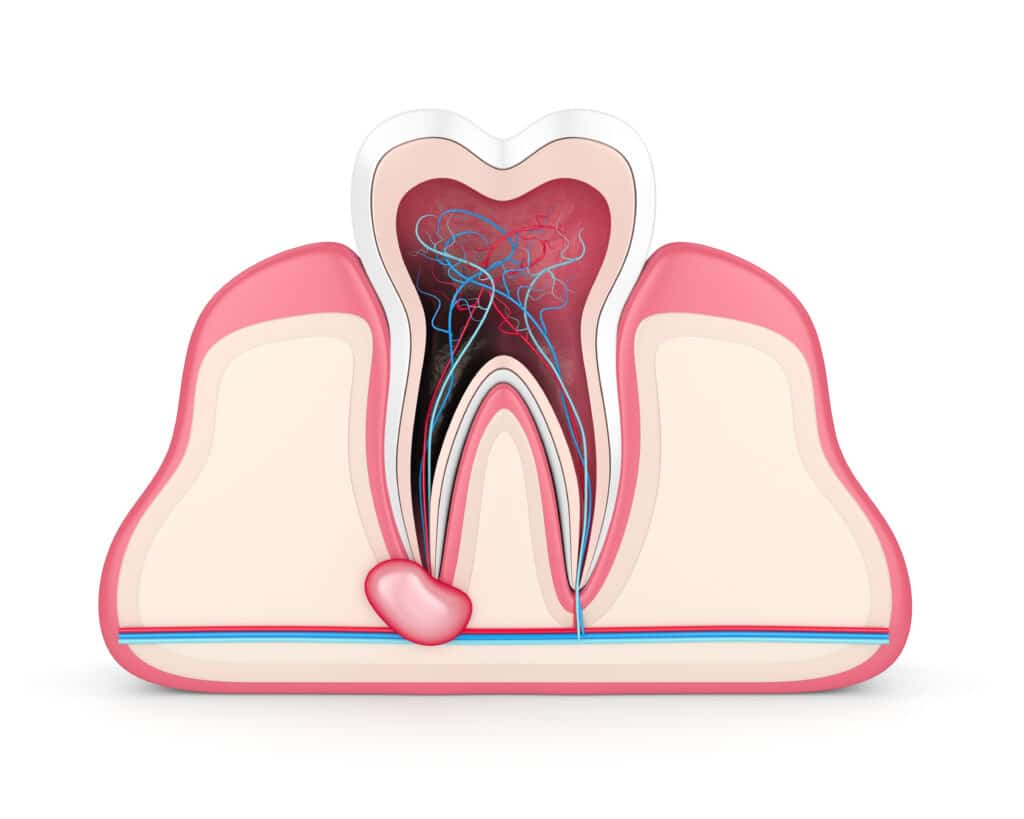
Many patients experience a tooth abscess in their lifetime but may not know what they are or how they are caused. Tooth abscesses can be very painful and cause major tooth decay. An abscess is a pocket of pus that is caused by bacteria on different areas of your teeth. In this blog we will discuss signs to watch for and how to avoid a tooth abscess in the first place.
Mountain View Dental provides great oral care and dental education to help patients have beautiful teeth. Learning about dental problems can help you avoid them, keep your teeth bright, prevent bad breath, and limit jaw pain. Good oral health is not only healthy but helps you feel better about yourself.
Common Abscess Symptoms
One thing that all tooth abscess patients will feel is throbbing pain. Tooth abscesses will often start to hurt in just one tooth, but the pain can radiate to the rest of your teeth, your neck, and your head.
Other symptoms include:
- Red swollen gums
- Tooth Sensitivity
- Bad breath
- Foul taste in your mouth
- Loose teeth
- Pain that gets worse when you lie down
- Swollen lymph nodes
- Fever
If you start to experience any of these symptoms contact your dentist and get an appointment as soon as possible. Some of these symptoms are also common in other dental problems like cavities and tooth decay.
Different Types Of Abscesses
There are three main types of abscess teeth that can help to know how severe your dental problem is. All abscess types are serious and should be treated effectively by a dentist.

Periapical Abscess: This occurs at the tip of the tooth’s root.
Periodontal Abscess: The abscess occurs on the gum next to the root of the tooth and can also spread to the surrounding tissue and bone.
Gingival Abscess: This abscess occurs on the gums.
How Your Dentist Can Help
Your dentist will be able to help improve your abscess and do X-rays to determine how far the abscess has spread. Avoiding an abscess in the first place is fairly easy with common dental cleanings and checkups and proper at-home oral care. Flossing, brushing, and a proper diet will help prevent bacteria buildup.
Depending on the severity and infection of your abscess, your dentist will perform some of the following:
- Draining the abscess: By making a small cut into the abscess the dentist will drain the pus that has built up. They will then clean the area with saline solution.
- A root canal procedure: Root canals involve drilling into the tooth to drain the abscess and remove the infected pulp. After this is drilled out, the dentist will fill the hole and seal it, possibly with a crown to strengthen the tooth going forward.
- Tooth extraction: When a tooth is too damaged to salvage, the dentist will remove it before draining the abscess. The tooth can be pulled to better reach the abscess and prevent further infection.
- Antibiotics: If the infection has spread beyond the abscessed tooth or has a weakened immune system, the dentist will prescribe antibiotics to help clear up the infection.
- Removal of foreign objects: Some abscesses are caused by foreign objects like food, floss, or other objects. Removing these will stop the abscess from getting worse, limit swelling, and stop potential tooth decay. They will then clean the area with saline solution.
Oral Health With Mountain View Dental
Our team works to provide residents of Pleasant View with the best oral health. We offer annual cleanings, tooth extractions, root canals, dental implants, teeth whitening, and more! Our dental office can help dental patients of all ages have healthier and better-looking teeth.

Our office has been built to help you feel relaxed and comfortable. With 19 exam rooms, personal TV’s for patient distractions, private consultation rooms, and a chest filled with prizes for children, you will feel at ease while you are taking care of your oral health. Visit our office in Pleasant View to see if our team is the best option for you.
